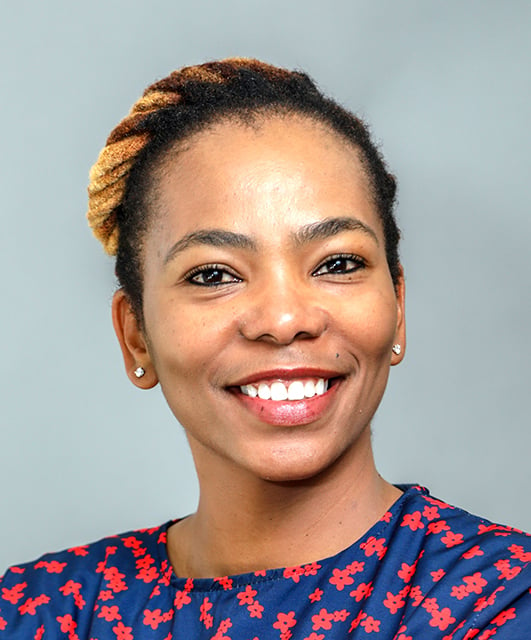This article was produced with the support of Standard Bank Group
Africa finds itself at a crucial juncture in its path toward development. The continent is facing an unprecedented urgency for robust and resilient infrastructure, driven by a rapidly growing population, urbanisation, and expanding economies.
Infrastructure development serves as an essential foundation for economic growth, fostering regional integration and driving social progress through its various components, including roads, railways, ports, dams, and power grids. Streamlined transportation networks significantly lower the expenses associated with goods, while dependable and cost-effective energy sources fuel both industries and households. The advent of digital connectivity paves the way for unprecedented access to global markets and fosters innovation across various sectors.
Infrastructure projects in African markets do however encounter distinct challenges. These projects often involve cross-border trade agreements (importing equipment, exporting engineering services etc), which introduce significant risks for both exporters and importers. Payment uncertainties, political instability, currency volatility, exchange controls, performance failures and supply chain disruptions are just a few of the risks that can derail project delivery. In addition to the conventional hurdles, businesses are increasingly faced with overarching sustainability risks, including the need for climate adaptation and mitigation, the challenges of resource scarcity, and the importance of community involvement and integration. Consequently, the effective execution of infrastructure development projects is crucial for driving economic growth, fostering socio-economic advancement, promoting regional integration, and enhancing climate resilience.
In response to some of these challenges, businesses are turning to trade finance solutions, especially Documentary Trade instruments, to ensure seamless operations and financial stability during the entire project lifecycle. Documentary Trade instruments, such as Letters of Credit and Guarantees, are perfectly positioned to mitigate risks of non-payment for exporters while simultaneously ensuring delivery of goods for importers. Moreover, they empower companies to fulfil essential infrastructure initiatives.
The introduction of Letters of Credit or Guarantees structured in a sustainable finance format is a relatively recent development in the African market. These groundbreaking solutions enhance and promote initiatives and endeavours that demonstrate a distinct positive environmental or social impact.
As an example, companies involved in the supply or purchase of wind turbines, solar photovoltaic (PV) components, engineering services or the construction of affordable basic infrastructure projects that meet relevant criteria can benefit from green or social Letters of Credit. These instruments assure that payment will be made upon delivery of compliant documents. Furthermore, they mitigate the risk of supply chain disruptions that are a result of regulatory non-compliance, while embedding the environmental and/or social impact of the underlying project into the solution.
Green or Social Guarantees and Stand-by Letters of Credit play a crucial role in advancing decarbonisation efforts, while simultaneously fostering a positive social impact. The impact of this extends across the entire operations and strategy of a company, encouraging greater alignment with its sustainability goals.
The alignment of these solutions with the Loan Market Association’s Green Loan Principles or the Social Loan Principles allows us to partner with clients across green project categories that include; renewable energy, climate change resilience and adaptation and sustainable water as well as social project categories including affordable basic infrastructure and access to essential services.
At Standard Bank Corporate and Investment Banking we have been at the forefront of bringing these innovative solutions to market across the African continent. We issued our first to market Green Guarantee on behalf of Raubex Group Ltd, a leading construction client in South Africa to support renewable energy construction projects in South Africa.
As the CEO of Raubex Group Felicia Msiza puts it, “as we continue to address the pressing challenges of poverty, unemployment and inadequate infrastructure, this facility enables us to accelerate our efforts in driving the energy transition and contributing to a greener, more equitable future for South Africa.”
In the high-stakes world of infrastructure development, Sustainable Trade Finance is more than a financial tool, it’s a strategic enabler. By leveraging Documentary Trade instruments and other trade finance solutions, exporters and importers can de-risk delivery, unlock financing, and ensure that critical infrastructure projects are completed on time and on budget whilst ensuring that the solution aligns with the underlying project environmental or social positive impact.
We have partnered with clients across the international trade spectrum to derisk the delivery of critical infrastructure for both governments and private sector corporates across the African markets. Our solutions enhance trust and transparency in cross-border transactions. They align incentives between parties to meet milestones and quality standards, whilst protecting working capital and reducing the reliance on unsecured credit markets.


 Sign in with Google
Sign in with Google 



